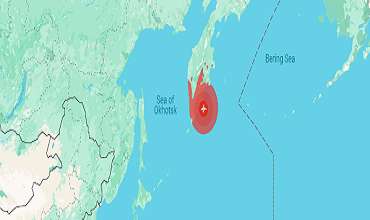Cyber attack sweeps globe, researchers see 'WannaCry' link
(REUTERS) A major global cyber attack on Tuesday disrupted computers at Russia's biggest oil company, Ukrainian banks and multinational firms with a virus similar to the ransomware that last month infected more than 300,000 computers.
The rapidly spreading cyber extortion campaign underscored growing concerns that businesses have failed to secure their networks from increasingly aggressive hackers, who have shown they are capable of shutting down critical infrastructure and crippling corporate and government networks.
It included code known as "Eternal Blue," which cyber security experts widely believe was stolen from the U.S. National Security Agency (NSA) and was also used in last month's ransomware attack, named "WannaCry."
"Cyber attacks can simply destroy us," said Kevin Johnson, chief executive of cyber security firm Secure Ideas. "Companies are just not doing what they are supposed to do to fix the problem."
The ransomware virus crippled computers running Microsoft Corp's (MSFT.O) Windows by encrypting hard drives and overwriting files, then demanded $300 in bitcoin payments to restore access. More than 30 victims paid into the bitcoin account associated with the attack, according to a public ledger of transactions listed on blockchain.info.
Microsoft said the virus could spread through a flaw that was patched in a security update in March.
"We are continuing to investigate and will take appropriate action to protect customers," a spokesman for the company said, adding that Microsoft antivirus software detects and removes it.
Russia and Ukraine were most affected by the thousands of attacks, according to security software maker Kaspersky Lab, with other victims spread across countries including Britain, France, Germany, Italy, Poland and the United States. The total number of attacks was unknown.
Security experts said they expected the impact to be smaller than WannaCry since many computers had been patched with Windows updates in the wake of WannaCry last month to protect them against attacks using Eternal Blue code.
Still, the attack could be more dangerous than traditional strains of ransomware because it makes computers unresponsive and unable to reboot, Juniper Networks (JNPR.N) said in a blog post analyzing the attack.
Researchers said the attack may have borrowed malware code used in earlier ransomware campaigns known as "Petya" and "GoldenEye."
Following last month's attack, governments, security firms and industrial groups aggressively advised businesses and consumers to make sure all their computers were updated with Microsoft patches to defend against the threat.
-
Still No Comments Posted.


















Leave Comments